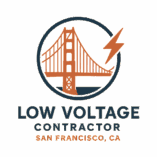The Importance of Hiring a Licensed C-7 Low Voltage Contractor in San Francisco
Introduction
Low voltage systems—covering security cameras, access control, structured cabling, and audiovisual networks—are integral to modern San Francisco businesses. However, installing these systems improperly can lead to safety hazards, legal penalties, and costly rework.
A licensed C-7 low voltage contractor in San Francisco is certified to handle installations safely, in compliance with California regulations, and according to industry best practices. This article explores the critical reasons why hiring a licensed professional matters, the risks of unlicensed work, and actionable tips for selecting the right contractor.
Table of Contents
- What is a C-7 Low Voltage Contractor?
- Why Licensing Matters in San Francisco
- Risks of Hiring Unlicensed Low Voltage Installers
- Benefits of Working with a Licensed C-7 Contractor
- How to Verify a C-7 Contractor’s Credentials
- Common Low Voltage Projects Requiring a C-7 License
- Future Trends in Low Voltage Contracting
- Conclusion and Key Takeaways
- FAQs
1. What is a C-7 Low Voltage Contractor?
A C-7 license is issued by the California Contractors State License Board (CSLB) and specifically authorizes contractors to work on low voltage systems operating at 91 volts or less.
Scope of Work Includes:
- Security camera systems (CCTV)
- Access control systems (keypads, card readers)
- Structured cabling for voice, data, and AV
- Fire alarms and intrusion detection systems
- Audio-visual systems
Expert Insight:
According to CSLB guidelines, C-7 contractors must pass a rigorous exam covering safety, electrical standards, and business practices, ensuring they meet California’s strict building and safety regulations.
2. Why Licensing Matters in San Francisco
San Francisco enforces strict building and electrical codes. Hiring a licensed contractor ensures:
- Compliance with Local Codes: All work meets San Francisco Department of Building Inspection (DBI) requirements
- Safety Assurance: Proper grounding, wiring, and fire safety standards are followed
- Insurance Coverage: Licensed contractors carry liability insurance, protecting clients in case of accidents
- Legal Protection: Avoid fines or penalties associated with unlicensed work
- Quality Assurance: Certified knowledge of low voltage systems and adherence to ANSI/TIA and NEC standards
Statistic: Unlicensed electrical work in California accounts for an estimated 40% of reported safety violations in commercial properties (CSLB, 2023).
3. Risks of Hiring Unlicensed Low Voltage Installers
Hiring unlicensed workers may seem cost-effective but carries significant risks:
- Safety Hazards: Improper grounding, short circuits, and fire risks
- Code Violations: Non-compliant installations can lead to fines or legal action
- Warranty Issues: Manufacturers may void warranties if systems are not installed by a licensed contractor
- Performance Failures: Poor cabling or incorrect terminations can compromise data and security systems
- Insurance Liability: Property damage or injuries may not be covered
Tip: Always request proof of license and insurance before any project begins.
4. Benefits of Working with a Licensed C-7 Contractor
- Expertise in Complex Systems: From structured cabling to integrated security systems
- Adherence to Standards: Compliant with ANSI/TIA, NEC, and San Francisco-specific codes
- Comprehensive Documentation: Proper labeling, schematics, and testing reports
- Long-Term Reliability: Reduced maintenance costs and minimized downtime
- Peace of Mind: Legal and safety compliance guaranteed
Quote from Industry Expert:
“Hiring a licensed C-7 contractor ensures your low voltage systems are not only functional but future-proof and compliant with California codes,” says Mark Reynolds, Senior Network Infrastructure Consultant.
5. How to Verify a C-7 Contractor’s Credentials
Step 1: CSLB License Check
Visit the California Contractors State License Board to verify active status.
Step 2: Insurance Verification
Ensure general liability and workers’ compensation coverage are current.
Step 3: Project Portfolio Review
Request references or completed project examples relevant to your system type.
Step 4: Written Estimates and Contracts
Detailed scope, materials, and compliance guarantees reduce disputes.
6. Common Low Voltage Projects Requiring a C-7 License
- Security camera installation (CCTV/NVR)
- Access control systems for offices and commercial buildings
- Fire alarm and life safety low voltage systems
- Structured cabling for network infrastructure
- Audio-visual setups for conference rooms
Pro Tip: If a project involves devices operating at 91 volts or less, a C-7 license is legally required in California.
7. Future Trends in Low Voltage Contracting
- Integration of Smart Building Technology: IoT devices requiring professional low voltage integration
- Increased Bandwidth Needs: Higher data rates driving structured cabling upgrades
- Sustainability Practices: Energy-efficient wiring and reduced material waste
- Remote Monitoring and Maintenance: Contractors implementing cloud-based network management
- Stricter Enforcement of Licensing Laws: CSLB increasing inspections for unlicensed work
Conclusion
Hiring a licensed C-7 low voltage contractor in San Francisco ensures:
- Compliance with city and state codes
- Safe and reliable installations
- Long-term system performance and scalability
- Legal protection and insurance coverage
Actionable Advice: Prioritize licensing and credentials over cost. The long-term benefits in safety, reliability, and compliance far outweigh short-term savings.
FAQs
Q1: What voltage range does a C-7 contractor handle?
C-7 contractors work with low voltage systems operating at 91 volts or less.
Q2: Is licensing required for all low voltage work in San Francisco?
Yes, projects involving devices under 91 volts must be handled by a licensed C-7 contractor.
Q3: How do I check a contractor’s license?
Use the CSLB License Check portal to confirm status and expiration.
Q4: Can unlicensed contractors legally install low voltage systems?
No. Hiring unlicensed personnel risks fines, legal action, and system failure.
Q5: What systems require a C-7 license?
Security systems, access control, structured cabling, fire alarms, and audiovisual networks.
